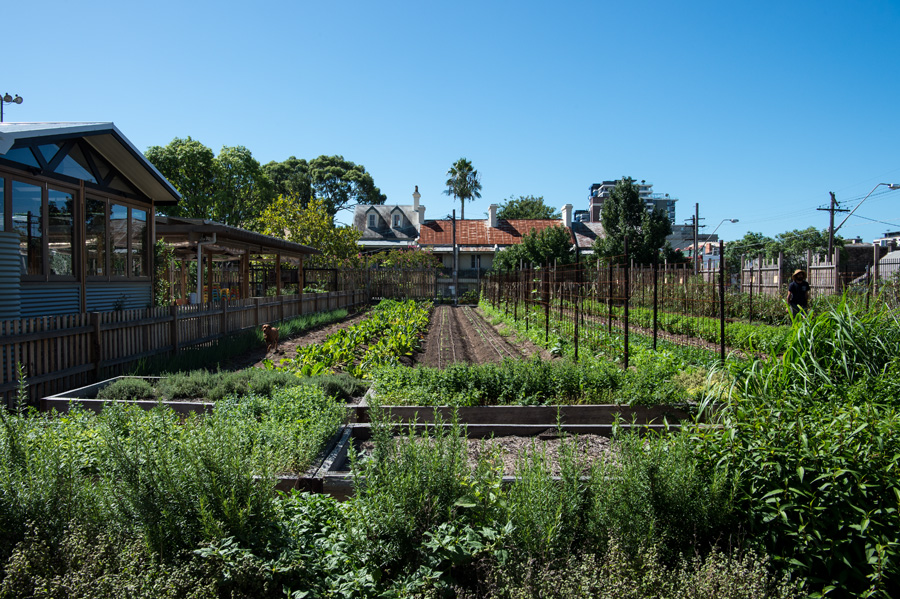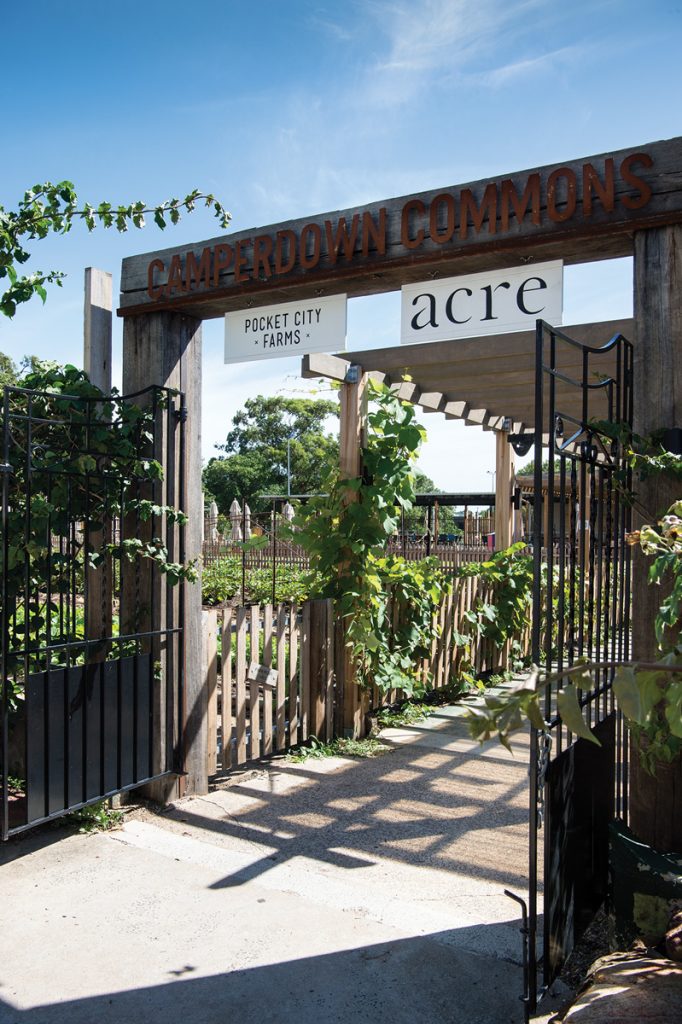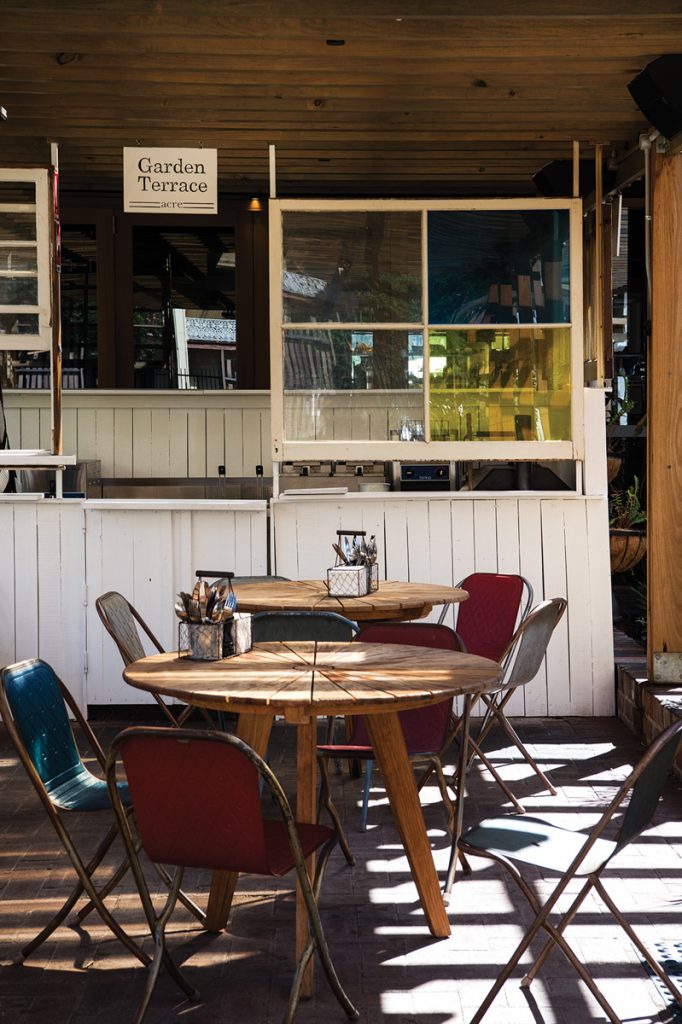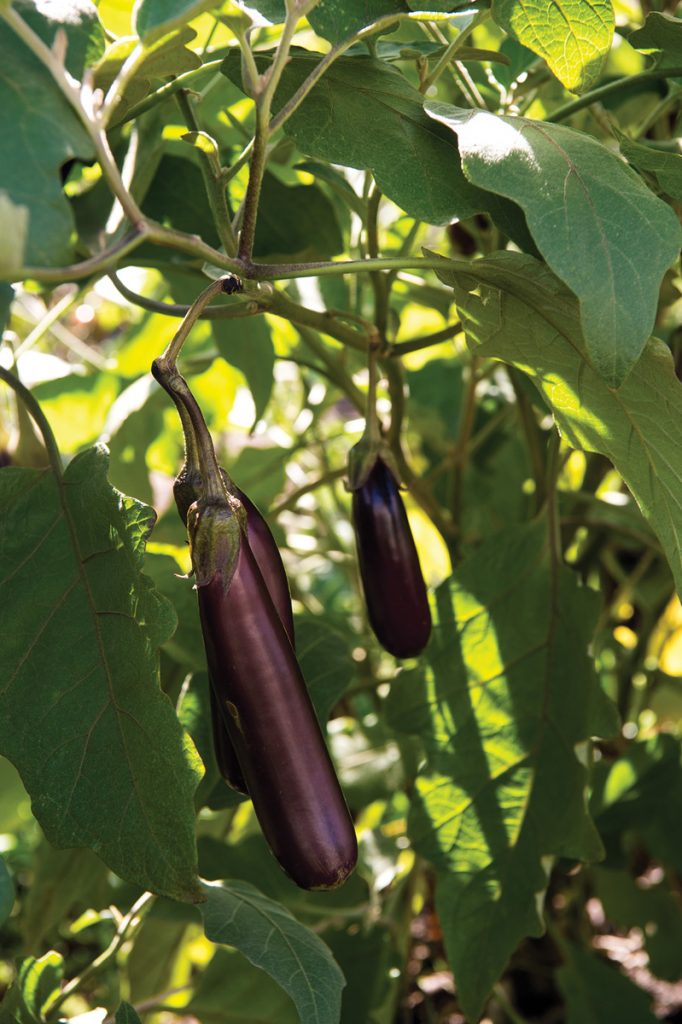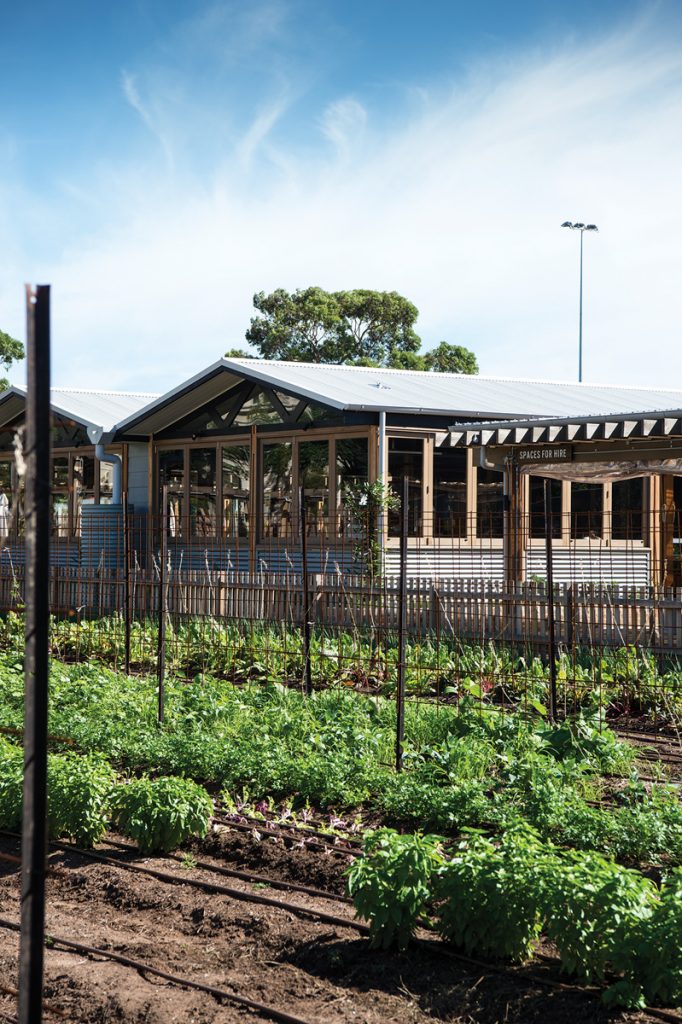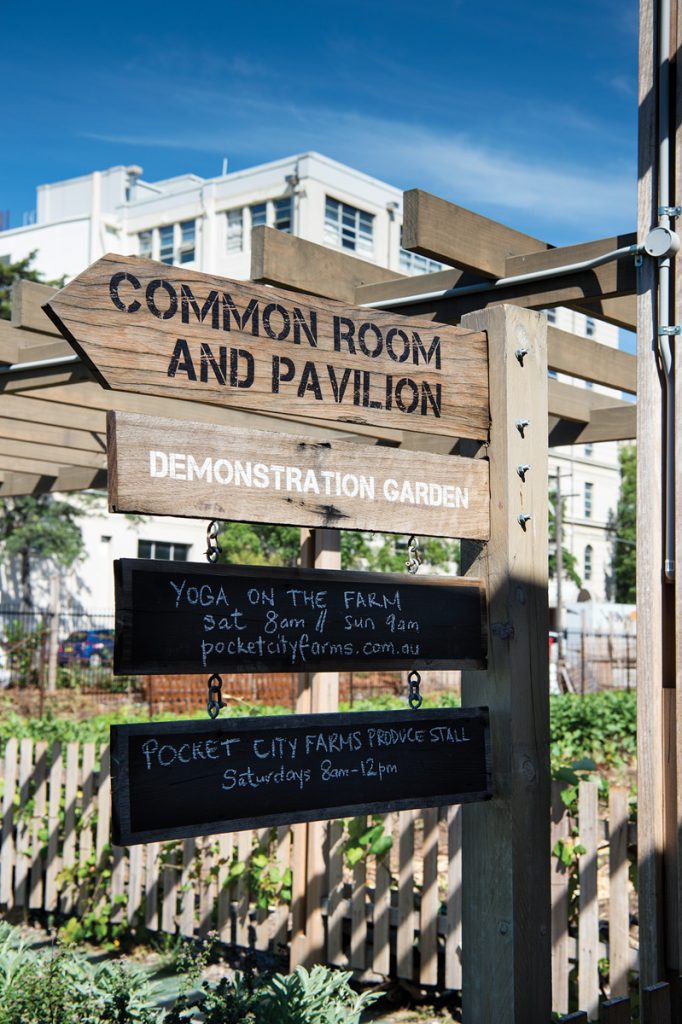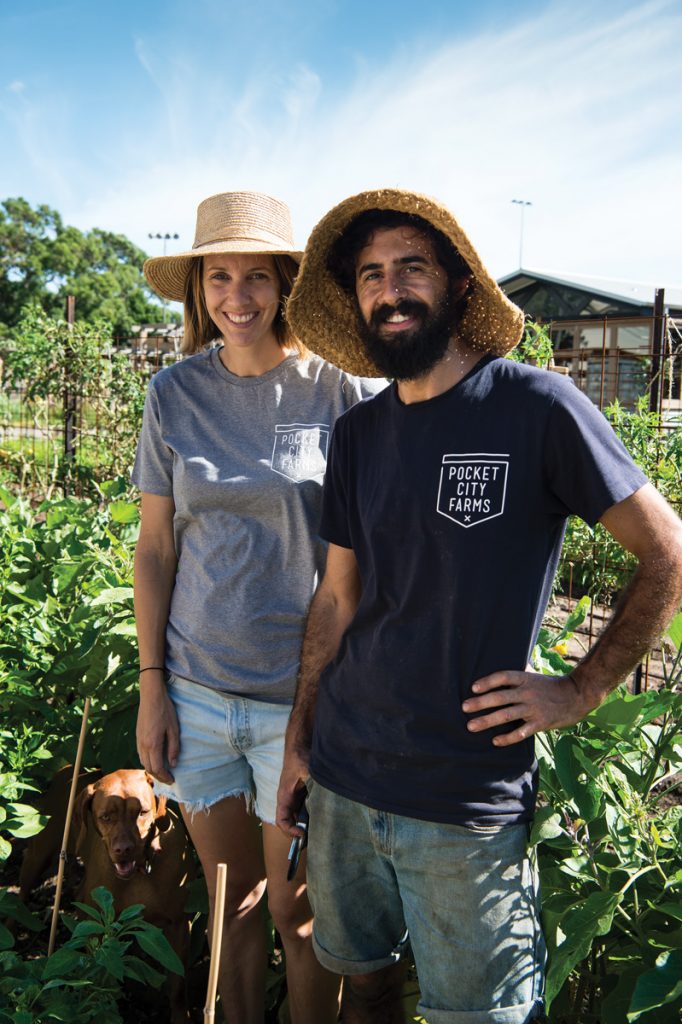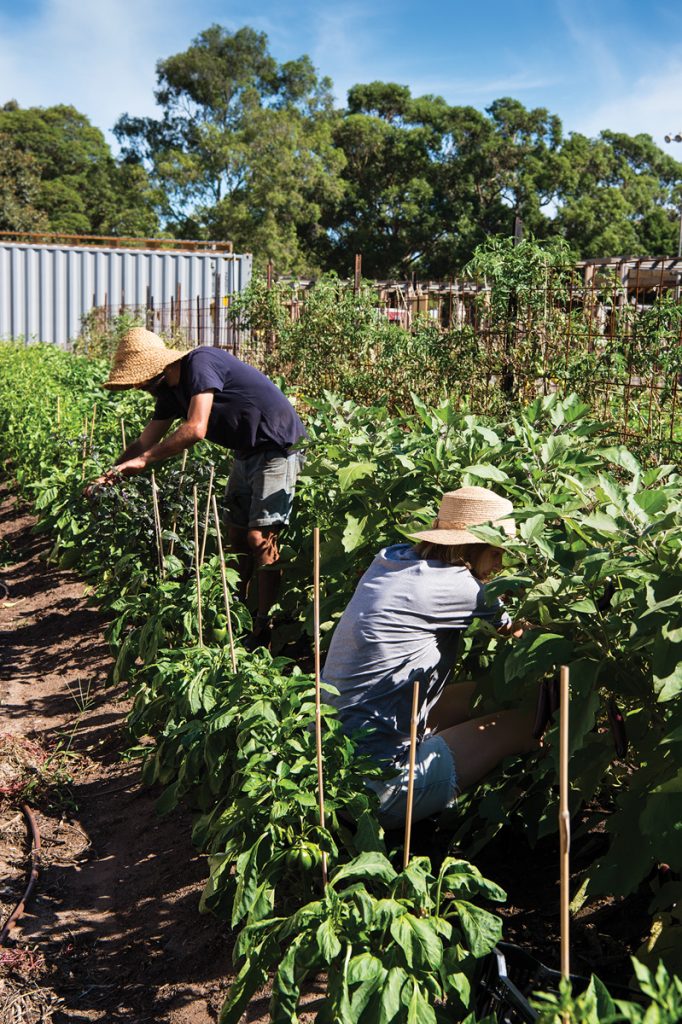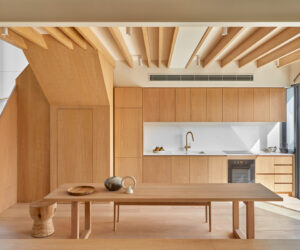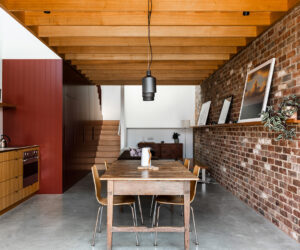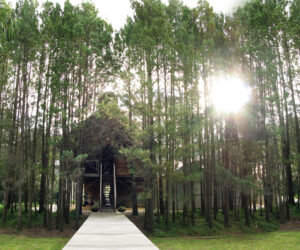City Farmers
Ex-publishing duo Emma Bowen and Michael Zagoridis trade in their desk jobs to pursue urban farming, and it turns out they’re pretty good at it.
While it is sad to see the closing of another local bowling green, signalling a shift in taste and the passing of another era, it’s an immense relief that the land it occupied has not become a prime development site for yet more apartments, but has been retained as open space. And it’s even more exciting when that open space is not just recreational, but productive.
Pocket City Farms is the brainchild of ex-publishing duo Emma Bowen and Michael Zagoridis. In 2011 the couple decided they wanted a career change. Both were interested in urban sustainability, food production and permaculture, so they swapped their desk jobs to work on farms on the outskirts of Sydney. Then they began to scout around the city for vacant land – even space on top of buildings – that could be transformed into a small farm.
Three years later they found what they were looking for. After five decades the Camperdown Bowling Club, just off Parramatta Road in Sydney’s inner west, turned off its sprinklers for the last time and closed its doors. Situated on Crown land on the edge of a park, the bowling club had been managed by the Inner West Council. After it closed, the council advertised for tenders for a new communityfocused, recreational use of the land. At the same time, an unlikely party interested in diversifying into new community concerns entered the picture – the Canterbury-Hurlstone Park RSL Club. Emma and
Michael, who had by this time teamed up with architect Karen Erdos, pitched to the club their idea of an urban farm, and together the two somewhat unlikely partners put forward a winning tender.
In June of last year, after extensive soil testing, followed by two green manure crops and copious amounts of compost, the venture opened its doors to the community. The site is now leased by
Camperdown Commons, a subsidiary of the RSL club. Standing in place of the old clubhouse is an airy timber-clad restaurant called Acre (the only commercial business on the site), with a large room beside it that is managed by Camperdown Commons and available for hire by the community.
Pocket City Farms, a not-for-profit enterprise, leases the remaining open space. The bowling greens, totalling 1200-square-metres, have been transformed into two fields with neat rows of vegetables and fruit trees. At the southern end of the site is a greenhouse filled with micro-greens, plus a chook pen that’s home to a quartet of rescued battery hens. At the northern end is a small demonstration garden where classes are held in everything from growing bush tucker to making insect “hotels”, organic pest control and small-space edible gardening. The produce from the farm is sold to Acre restaurant, as well as to other local chefs and a couple of co-ops, and on
Saturdays the dynamic duo run their own fresh produce market on the site. “We have a few different aims,” says Emma, “but chiefly it’s to educate people about what growing food involves and the amount of time and effort that goes into it. Here we use organic methods and do everything by hand.”
And Camperdown isn’t a one-off venture. “We’re on the look out for more sites around the city where we can set up farms and provide jobs for more urban farmers. We would really like to up-skill people to do this as an occupation – that’s our long-term goal.”
